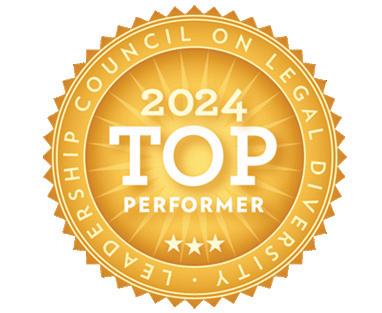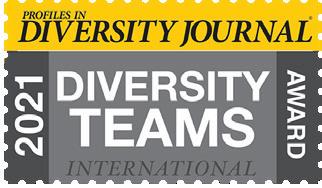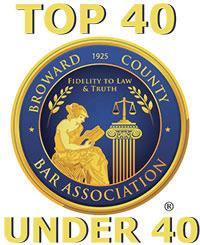REAL ESTATE EDITION

IN THIS ISSUE:
• Florida: Pro Se Corporations Not Allowed
• Florida’s Fourth Dca Holds That Borrowers Lack Standing to Challenge the Authenticity of Note Endorsements
• Indiana’s “Lender Exception” Rule Applies to a Leasehold Mortgage in Mechanic’s Lien Priority Disputes
• Indiana Court Affirms Admissibility of Business Records from Prior Servicers
• Illinois First District Appellate Court Finds Mortgage Encumbers Only the Interest of Borrowing Joint Tenant and Not Homestead-Waiving Spouse
• Complete Court File Required: New York Appellate Courts Dismiss Appeals Which failed To Provide All Proper Records Despite Valid E-Filing Citation
EDITOR’S LETTER
WELCOME

Jason M. Vanslette Editor and Chair of Real Estate Division
“Nothing endures but change.
–Heraclitus
Nothing this year (thus far) has been on our proverbial 2025 “Bingo!” cards which has made navigating our industry anything but easy. We’ve had interest rates going opposite directions from the analysts, unexpected international tariffs and consumer sentiment declining rapidly due to the inflationary costs across almost every market. This financial uncertainty is making its way to first-time homebuyers and the real estate market as a whole, as loan applications and originations are down considerably. This lack of movement has allowed for many properties on the market to remain stagnant causing home price decline and/or sellers to simply take their property off the market.
“We have also started seeing an increase in the amount of REOs (or foreclosure sales going back to the banks). Although the increase is nominal, it is a notable “sign of the times” as REOs have been almost non-existent since before the pandemic due to high equity values (even with distressed properties). With changing regulations (or deregulation rather) and a volatile U.S. administration, the mortgage market could be in for a bumpy ride in 2025 as home equity positions start to change. Our firm is prepared for these changes and we look forward to assisting our clients with these fast-approaching fluctuations as they arise over the next several months.



FLORIDA
Florida: Pro Se Corporations Not Allowed

By: Jason M. Vanslette Editor and Chair of Real Estate Division
KK TAKEAWAY:
Mortgage foreclosure counsel should be mindful on business purpose loans that corporate defendants must have retained counsel to enter in appearance and participate in a mortgage foreclosure lawsuit.
BACKGROUND:
In Florida, it is quite easy to create a single purpose entity (such as an “LLC”) or any other form of corporate entity out of thin air. After paying the state’s registration, designating officers/agents and selecting a corporate name, a new corporate entity can be formed within minutes utilizing the Florida’s Department of State Division of Corporation’s website known as “Sunbiz.org”. However, when it comes to lawsuits, Florida courts have widely accepted the requirement that a corporation (unlike a “natural person”) must be represented by legal counsel to participate in an ongoing action.
In the lender world, business purpose loans, or “fix and flip” loans and many now call them, usually have single purpose entity borrowers or other limited liability companies taking out shortterm loans for the investment purposes. These loans are generally executed by a managing member or other natural person authorized under the corporate governing documents with signing authority to execute a promissory note and/or mortgage. That being said, if/when there is a lawsuit regarding a breach of those loan documents, such as a foreclosure lawsuit, the managing member cannot respond to the complaint even if they have authority to do so under their corporate governing documents.
“It is well recognized that a corporation, unlike a natural person” cannot represent itself and cannot appear in a court of law without an attorney.” Szteinbaum v. Kaes Inversiones y Valores, C.A., 476 So. 2d 247, 248 (FLA. 3d DCA 1985). In fact, “…a pleading signed in the corporate name by one of its agents or officials is a nullity, and must be disregarded…” Running Cars, LLC v Miller, 333 So. 3d 1177, 1179 (Fla. 1st DCA 2022).
Therefore, lender’s counsel should be mindful of the limitations of corporate defendants and not waste judicial resources litigating pro se filings by a “Mangin Member” or corporate officer if not filed by legal counsel. Understanding the Florida case law on this issue could save both extensive time and money at the outset of a corporate defendant lawsuit.
Florida’s Fourth DCA Holds That Borrowers Lack Standing to Challenge the Authenticity Of Note Endorsements

By: Bryan S. Jones, Attorney
KK TAKEAWAY:
While not yet final, Florida’s Fourth District Court of Appeals issued an opinion holding that mortgage foreclosure defendants may not lawfully challenge the authenticity of note endorsements.
BACKGROUND:
In a decision that is not yet final, Florida’s Fourth District Court of Appeals held that defendants to mortgage foreclosure actions lack standing to challenge the authenticity of endorsements on a promissory note. Specifically, in the case of Bank of New York Mellon v. Lopez, 2025 WL 542474, 50 Fla. L. Weekly D438 (4th DCA Feb. 19, 2025), the Fourth District Court of Appeals reversed a final judgment entered in favor of the defendant, holding that the trial court committed error by denying admission of an allonge at trial based upon an objection by the defendants concerning the authenticity of the endorsements of the allonge. In the trial court matter, the defendants pleaded in their answer that the signatures on the note endorsements were neither authentic nor authorized. Subsequently, at the trial, the defendants argued that the endorsements on
the allonge were not authentic signatures and that the endorsement signers lacked authority to endorse the promissory note. To support their claims, the defendants relied upon the testimony of a handwriting expert, who testified that it was “highly probable” that the signatures on the endorsements were not authentic. The defendants also introduced corporate annual filings to show that the endorsement signer was not listed as an officer for the companies that executed the endorsements. Meanwhile, the plaintiff countered by introducing testimony from the deposition of the endorsement signer in which the endorsement signer testified that she did, indeed, sign the endorsements and had authority to do so. Ultimately, the trial court sided with the defendants, excluding the allonge, which led to a finding that the plaintiff lacked standing to foreclose the promissory note and mortgage and judgment for the defendants. An appeal followed.
Upon review, the court of appeals held that the trial court erred by even considering the defendant’s challenges to the authenticity of the endorsements. Citing to longstanding case authority, the appellate court held that an endorsement on promissory note constitutes a new contract between the endorser and the endorsee, separate from the note itself. Based upon this premise, the appellate court found that the defendants lacked standing to challenge the endorsements, as the defendants are neither parties nor third-party beneficiaries to the endorsements. The court of appeals likened this analysis to multiple decisions by other courts in other jurisdictions holding that debtors lack standing to challenge the validity of assignments of mortgage. Having determined that proper

admission of the allonge would have established the plaintiff’s standing to foreclose as holder of the note and mortgage, and having found that the plaintiff otherwise proved all of the elements of mortgage foreclosure, the Fourth District Court of Appeals reversed the trial court’s ruling and remanded the matter back to the trial
court to enter final judgment of foreclosure in favor of the plaintiff. Following the appellate ruling, a motion for rehearing was filed by the defendants/appellees. That motion for rehearing was denied. However, as of thedrafting of this article, no mandate has been issued.

INDIANA
Indiana’s “Lender Exception” Rule Applies to a Leasehold Mortgage in Mechanic’s Lien Priority Disputes

By: R. Elliott Halsey, Partner
KK TAKEAWAY:
Mortgage documents must clearly state that the funds are for the specific project for the mortgage to enjoy priority over a subsequently recorded mechanic’s lien under the Indiana “Lender Exception” rule.
BACKGROUND:
The Indiana “Lender Exception” rule protects the priority of a senior mortgage over a mechanic’s lien recorded after the mortgage, when the mortgage funds are for a project that gave rise to the mechanic’s lien. This Rule and three Indiana statutes govern priority between a mortgage and a mechanic’s lien: Indiana Code Sections 32-21-4-1(b), 32-28-32 and 32-28-3-5(d).
The Rule also applies to leasehold mortgages, as in the case of Kellam Excavating v. Community State Bank, 82 N.E.3d 928 (Ind. Ct. App. 2017) where a lessee of real estate and a contractor entered into a construction contract, and the lessee later needed additional financing for the construction. After granting a mortgage lender a leasehold mortgage, the lessee failed to pay the
contractor and mortgage loans. Collection and foreclosure litigation included a lien priority dispute between the bank and the contractor.
The contractor unsuccessfully appealed the court’s decision of priority in favor of the bank. The Court held that the Lender Exception rule extends to leasehold mortgages, which operate as a normal owner mortgage by granting a lien property right and obligating repayment of funds the bank expended. The Court rejected the contractor’s distinction that the lessee did not sign a note, because a promissory note is not required for a valid mortgage.
Indiana Court Affirms Admissibility of Business Records from
Prior Servicers

By: Travis P. Barry, Attorney
KK TAKEAWAY:
Hearsay evidence introduced by affidavit may be admitted to prove a plaintiff’s case, even when containing the records of a third party, so long as the affidavit provides the proper foundation to qualify under the business records exception.
BACKGROUND:
In King v. Nat’l Collegiate Student Loan Tr. 2006-4, 232 N.E.3d 646 (Ind. Ct. App. 2024), the court considered a case where the assignee of student loans pursued a judgment against a borrower in default. The loan was purchased as a part of a pool put together by the original lender, JPMorgan Chase Bank. As is also often the case in the mortgage lending industry, the loan was sold and serviced by multiple parties before ultimately coming into possession of the Plaintiff. In this particular instance, at least four parties were involved in the handling of the loan. At the summary judgment stage, the borrower contested the Plaintiff’s supporting affidavit on the basis that the affiant did not have sufficient personal knowledge of the data created by previous parties to lay a proper foundation, thus rendering the records inadmissible. The trial court disagreed and granted summary judgment in favor of the Plaintiff.
Upon appeal, the key to affirming the lower court’s decision was the detail in the affidavit’s testimony regarding the method and manner in which the prior servicers’ records were incorporated into the Plaintiff’s system and the understanding of the processes involved by which the information is obtained. The appellate court compared and contrasted the present case with a prior decision in which a plaintiff’s affidavit was ruled to be insufficient – Holmes v. Nat’l Collegiate Student Loan Tr., 94 N.E.3d 722 (Ind. Ct. App. 2018).
Under Indiana law, a witness may only testify to a matter if evidence is introduced sufficient to support a finding that the witness has personal knowledge of the matter. Ind. R. Evid. 602. Furthermore, hearsay evidence is prohibited unless otherwise provided in the rules or law. Ind. R. Evid. 802. Rule 803(6) provides an exception for a record of regularly conducted activity – a record of “an act, event, condition, opinion, or diagnosis” so long as certain foundational requirements are met:
(A) the record was made at or near the time by—or from information transmitted by— someone with knowledge;
(B) the record was kept in the course of a regularly conducted activity of a business, organization, occupation, or calling, whether or not for profit;
(C) making the record was a regular practice of that activity;
(D) all these conditions are shown by the testimony of the custodian or another qualified witness, or by a certification that complies with Rule 902(11) or (12) or with a statute permitting certification; and (E) neither the source of information nor the method or circumstances of preparation indicate a lack of trustworthiness.
It is imperative for lenders and servicers to understand the requirements for the admissibility of evidence under the business records exception to hearsay. Particular attention must be paid when the records of a third party are going to be incorporated into the plaintiff’s system. Furthermore, employees involved in the creation of these records and the affidavits based on them need to be prepared to competently testify at a deposition. Even a well-crafted affidavit is undermined by contradictions made by the affiant that call into question the veracity of its contents.

ILLINOIS
Illinois First District Appellate Court Finds Mortgage Encumbers Only
the Interest of Borrowing Joint Tenant and Not HomesteadWaiving Spouse

By: Johnny Dale Frevert, Jr., Attorney
KK TAKEAWAY:
A joint tenant may mortgage their half interest in a property without the consent of the other joint tenant, so the remaining joint tenant’s execution of said mortgage waiving only their homestead interest serves only to encumber the interest of the joint tenant who signed without this qualification under Illinois law.
BACKGROUND:
In Thomas v. U.S. Bank Trust, N.A., 2025 IL App (1st) 230439, Vernice Thomas and Jimmy Miller, then wife and husband, took title to a property in joint tenancy in 1996. In 2002, Ms. Thomas and Mr. Miller co-signed a note and mortgage as to this property. In 2003, the original loan was refinanced. In the 2003 refinance, only Mr. Miller signed the note. Ms. Thomas and Mr. Miller both signed the mortgage but Ms. Thomas, pursuant to a handwritten statement below her signature, signed the mortgage solely to waive her
homestead interest in the property. In 2015, Ms. Thomas and Mr. Miller divorced, with Mr. Miller quitclaiming his interest in the marital property to Ms. Thomas, for which Ms. Thomas was to be solely financially responsible. Ms. Thomas defaulted on payments on the 2003 mortgage, and, in 2018, a foreclosure was filed. In 2022, summary judgment was granted in favor of the Plaintiff-lender and Ms. Thomas’ quiet title complaint was denied. In 2023, that decision formed the basis of this appeal.
The central issue before the court on appeal was the effect of Ms. Thomas’ execution of the mortgage only to waive homestead coupled with the fact she did not execute the note: Was Ms. Thomas liable under the note and was her interest in the property subject to the mortgage?
The appellant argued first that the court should find the mortgage encumbered both Mr. Miller and Ms. Thomas’ interest in the subject property. Appellant put forth what it argued was an analogous case where there was such a finding which involved a husband and wife that held title as tenants by the entirety, the husband signing that mortgage solely to waive homestead, that also subsequently divorced (Berg v. eHome Credit Corp., 848 F. Supp. 2d 841 (N.D. Ill. 2012)). The court found the facts in that case distinguishable because the property was held in tenancy by the entirety: While a joint tenant may mortgage their interest in a property without the other joint tenant’s consent, this cannot occur if the property is held tenancy by the entirety. In the end, the Illinois First District Appellate Court
followed existing precedent in CitiMortgage, Inc. v. Parille, 2016 IL App (2d) 140286. This case held that where spouses holding title to a property in joint tenancy take out a loan secured by a mortgage, with one of the spouses signing solely to waive homestead, the interest of the joint tenant signing without qualification was the sole interest subject to the mortgage.
Accordingly, lenders should be vigilant and ensure that their loan is secured as to all owners of the subject property prior to disbursing funds at closing, as a failure to ensure same will have ripple effects upon a subsequent foreclosure of the mortgage.
Complete Court File Required: New York Appellate Courts Dismiss Appeals Which failed To Provide All Proper Records Despite Valid E-Filing Citation

By: Jason D. Silver, Partner
KK TAKEAWAY:
Two recent appellate opinions serve a reminder for litigants that all filed court papers and records must be provided to the appellate court – cites to electronically
filed documents are not enough. There is a dismissal of the appeal for failing to provide all filed documents from the underlying case to the appellate court.
BACKGROUND:
E-filing has increased in New York Courts dramatically since 2010. In 2014, the New York Civil Practice Law and Rules (the “CPLR”) was amended to allow efficient reference to already e-filed documents when making arguments.
Two recent opinions issued the last two weeks of April, 2025, spotlight the point that, in an appeal, simply relying on the e-filed court papers and those more efficient e-filing cites to prior e-filed documents in a case is not sufficient and, if documents are missing from the appeal package filed, it could be dismissed.
There has been an increase of almost 500% in e-filed cases in the Supreme Court since 2010 pursuant to a March 2024 Report issued by the Chief Administrative Judge of the State of New York on the status of New York State’s electronic filing program.
Pursuant to CPLR 2214(c), a party in an e-filed action may rely on e-filed papers and need not include those papers in its motion papers, “but may make reference to them, giving the docket numbers on the e-filing system.” See, e.g., Reardon v. Macy’s, Inc., 191 A.D.3d 712, 141 N.Y.S.3d 100, 102 (2d Dept. 2021).
The more recent of the two interesting opinions released during the last two weeks of April, 2025, is Sterling Trust Limited v. Stern, No. 2023-07900, 2025 WL 1242276,

at *1 (2d Dept., Apr. 30, 2025), where a litigant appropriately placed a summary judgment motion before the lower trial court in the electronically filed action by referencing documents in an attorney affirmation in support of the motion, but a problem occurred when the litigant then failed to reproduce the pleadings and underlying motion papers in the submission of the record on appeal.
The same appellate court issued a similar ruling the week before in Greenberg v. Frier & Levitt, LLC, No. 2023-10294, 2025 WL 1173102, at *1 (2d Dept., Apr. 23, 2025), where an appellant did not provide a copy of the complaint in the record on appeal, causing it to be dismissed.)
Discussing the point that “Pursuant to CPLR 5526, [i]t is the obligation of the appellant to assemble a proper record on appeal, and the record must contain all of the relevant
papers that were before the Supreme Court,” the appellate court in Sterling Trust Limited, supra, held that while there was no issue with how the motion and record were discussed and cited in the lower trial court, it was not enough to rely on same in the appeal – the actual court papers were not correctly provided as required by CPLR 5526 which includes the specific court papers which needed to be provide to the appellate court and the method they are to be physically printed and provided to the appellate court.
These recent appellate rulings serve as reminders that while the ability to efficiently cite to previously filed electronic court papers is allowed in the lower trial court, different rules and expectations still firmly apply in New York’s appellate courts. If certain documents from the record are not fully provided as required by CPLR 5526, there is a risk the appeal will be dismissed.
CONTRIBUTORS MEET THE


Jason M. Vanslette Editor and Chair of Real Estate Division
Email Jason M. Vanslette

Jason Vanslette is an “AV” rated Partner and Business Unit Leader, focusing his practice on Real Estate, and Mortgage Foreclosure & Default Services. In his practice, he represents mortgage servicers, mortgage lenders, and other financial service providers with foreclosure, bankruptcy, evictions, and title litigation matters. Jason overseas and manages the Real Estate and Mortgage Default and Lender Representation Divisions at Kelley Kronenberg, which has recently expanded to include Florida, Illinois, Indiana, and New York. Jason is rated AV Preeminent by Martindale-Hubbell, which indicates a demonstration of the highest professional and ethical standards and is the highest rating a lawyer can receive.
Jason began his legal career as an Assistant Public Defender for the Office of the Public Defender – 9th Judicial Circuit in Orlando, FL. During that time, he provided criminal defense representation to more than 200 clients simultaneously and served as Lead Chair on more than 15 jury trials.
Prior to joining the firm, Jason worked as an Attorney for a firm in Fort Lauderdale, FL, where he provided legal representation to major financial institutions and mortgage servicers in various counties throughout the state, while focusing on non-jury trials and contested litigation.
Jason earned a Bachelor of Arts degree from Florida State University. He went on to earn a Juris Doctorate degree from Nova Southeastern University, Shepard Broad Law Center where he earned a spot on the Dean’s List for three consecutive years and received the Pro Bono Honors Award. While attending law school, he served as an executive board member for Law Student Advisor, Chief Executive and Host of WLAW Radio and member of the Nova Trial Association.


Bryan S. Jones Attorney
Email Bryan S. Jones
Bryan Jones is an Attorney at Kelley Kronenberg, where he handles matters related to mortgage foreclosure & default services and assists banks and other financial service providers with regulatory, enforcement, transactional, and litigation matters.
Before joining Kelley Kronenberg, Bryan gained extensive experience representing corporate and non-corporate clients in variety of litigation matters in state and federal court, including escalated mortgage foreclosure, commercial, timeshare, consumer, and employment litigation.
Bryan received his Bachelor of Science in Journalism from the University of Florida. He went on to earn his Juris Doctor degree from Florida International University College of Law, where he made Dean’s list, ranked in the top 20% of his class and received several book awards.

R. Elliott Halsey Partner
Email R. Elliott Halsey

Elliott Halsey is an Attorney at Kelley Kronenberg focusing his practice on mortgage foreclosure litigation and assisting banks and other financial service providers with regulatory, enforcement, transactional and litigation matters.
Elliott has 18 years of legal experience in Bankruptcy, Real Estate, Foreclosure, and General Civil Practice in Chicago and collar counties. Prior to joining the firm, he was an Attorney at a Chicago firm where he handled matters in Foreclosures, Bankruptcy, Real Estate closings, Landlord-Tenant, Collections, Small Claims, and Arbitration. Throughout his extensive career, he has experience handling matters related to lien litigation, property tax litigation, evictions, family law, commercial property and Intellectual Property.
Elliott earned his Bachelor of Arts from Wittenberg University and a Master of Science from Miami of Ohio University. He then went to earn his Juris Doctor the Ohio Northern College of Law.

Jason D. Silver Partner
Email Jason D. Silver

Jason Silver is a Partner at Kelley Kronenberg, where he concentrates on matters related to all aspects of mortgage foreclosure & default services, assisting banks and other financial service providers with regulatory, enforcement, transactional and litigation matters, and representing commercial property owners and property managers with tenant lease compliance and breach issues.
Jason has close to a decade of experience in contested foreclosure litigation, guiding creditors from the beginning to completion of a court action.
Prior to joining the firm, Jason worked as an Associate Attorney at an AmLaw 200 firm focusing his practice
in the areas of banking and consumer finance. He also practiced bankruptcy and general litigation as well as municipal and government law, having presided as the Deputy Municipal Attorney for the Village of El Portal, Florida.
Jason received his Bachelor of Science in Public Relations with a minor in History from the University of Florida where he was elected to the Florida Blue Key Honor Society and awarded the Honorable Mention for the Outstanding Leadership and Service Award.
He then went on to earn his Juris Doctor degree from St. Thomas University School of Law. While in law school, Jason received a Book Award in Appellate Advocacy. Jason also worked as a legal intern for the Office of the City Attorney at the City of Miami in the Land Use, Zoning, and Quality of Life Division and interned for the Hon. Judge David Gersten (ret.) at the Third District Court of Appeal. Jason is an avid runner and successfully completed the ING Miami Half Marathon and 13.1 races in 2011 and the Hollywood Beach Half Marathon in 2020.

Travis P. Barry Attorney
Email Travis P. Barry

Travis P. Barry is an Attorney at Kelley Kronenberg, where he handles matters related to real estate and mortgage foreclosure litigation. He also assists banks and other financial service providers with regulatory, enforcement, transactional, and litigation matters.
Before joining Kelley Kronenberg, Travis worked at a national law firm, where he represented lenders in real estate matters, including title actions and foreclosure litigation.
Travis received his Bachelor of Science degree from the University of Illinois Urbana-Champaign. He then went on to earn his Juris Doctor degree from DePaul University College of Law, where he was awarded the Benjamin Hooks Distinguished Public Service Award for completing over 200 hours of pro bono work. He was also a Dean’s Merit Scholarship recipient and served as a 1L Student Mentor.

Johnny Dale Frevert, Jr. Attorney
Email Johnny D. Frevert Jr.

Johnny Frevert is an Attorney at Kelley Kronenberg who focuses his practice on real estate and mortgage foreclosure litigation. He brings significant experience managing default foreclosure filings and handling litigation matters for financial institutions. Johnny has worked in various legal settings throughout his career, including law firms specializing in mortgage foreclosure and municipal legal
departments. His background includes extensive experience in document review and coordinating with support staff to ensure efficient case management. Johnny received his Bachelor of Arts in English from the University of Missouri. He began his legal education at Barry University School of Law, where he participated on the Trial Team and served as Vice Justice for the American Association of Justice.
Johnny completed his Juris Doctor at Valparaiso University School of Law, where he served as the 3L Class Representative for the Student Bar Association and as a Student Representative for the Chicago Bar Association.
more than with over the convenience of
510 20 230
Employees Attorneys Locations
Founded in 1980, Kelley Kronenberg is an award winning, multi-practice national law firm with 510 employees, 230 attorneys, and 20 locations throughout Florida and the United States. We are privileged to represent large public and private companies, small businesses, and individuals nationwide. With more than 40 practice areas, and growth on the horizon, we offer a comprehensive catalog of legal services to protect your legal interests in business and at home. Our firm is progressive and technologically advanced, while remaining true to our customer service heritage: integrity, ingenuity, and sincerity. Ever mindful of our history, but intensely committed to our future, we offer our clients a small firm feel with large firm resources.

LOCATIONS

FORT LAUDERDALE
10360 W. State Road 84
Fort Lauderdale, FL 33324
Phone: (954) 370-9970
ORLANDO
20 North Orange Avenue, Suite 704
Orlando, FL 32801
Phone: (407) 648-9450
TAMPA
1511 North Westshore Blvd., Suite 400
Tampa, FL 33607
Phone: (813) 223-1697
DAYTONA
128 Orange Avenue, Unit 306
Daytona Beach, FL 32114
Phone: (754) 888-5437
NEW YORK CITY
111 Broadway, Suite 1205
New York, NY 10006
Phone: (845) 306-7867
CHICAGO
20 N. Clark Street, Suite 1150
Chicago, IL 60602
Phone: (312) 216-8828
JACKSONVILLE
10245 Centurion Parkway N, Suite 100
Jacksonville, FL 32256
Phone: (904) 549-7700
MERRILLVILLE
233 E. 84th Drive, Suite 200
Merrillville, IN 46410
Phone: (317) 731-6243
BY APPOINTMENT ONLY
ALBANY
401 New Karner Road. Suite 301
Albany, NY 12205
Phone: (845) 306-7867
SHORT HILLS
51 John F. Kennedy Parkway
First Floor West
Short Hills, NJ 07078
Phone: (908) 403-8174
MIAMI
220 Alhambra Circle, Suite 410
Coral Gables, FL 33134
Phone: (305) 503-0850
NEW ORLEANS
400 Poydras Street, Suite 2400
New Orleans, Louisiana 70130
Phone: (504) 208-9055
TALLAHASSEE
6267 Old Water Oak Road, Suite 250
Tallahassee, FL 32312
Phone: (850) 577-1301
DALLAS
5956 Sherry Lane, 20th Floor
Dallas, TX 75225
Phone: (983) 999-4640
WEST PALM BEACH
1475 Centrepark Blvd., Suite 275
West Palm Beach, FL 33401
Phone: (561) 684-5956
INDIANAPOLIS
10475 Crosspoint Blvd., Suite 218
Indianapolis, IN 46256
Phone: (317) 731-6243
NAPLES
3080 Tamiami Trail E., Suite 322
Naples, FL 34112
Phone: (239) 990-6490
BOSTON
90 Canal Street
Boston, MA 02114
Phone: (866) 643-9734
ATLANTA
1100 Peachtree Street NE, Suite 200
Atlanta, GA 30309
Phone: (404) 990-4972
FLORIDA KEYS
91760 Overseas Highway, Suite 100
Tavernier, FL 33070
Phone: (305) 928-6999


ACCOLADES AWARDS AND FIRM AWARDS
Kelley Kronenberg has been the recipient of numerous awards and honors both firm-wide and for a number of our practices, including individual accolades. Below is a select list of recognition and awards:




















REAL ESTATE ATTORNEY AWARDS


South Florida Business and Wealth: Real Estate Awards
Jason M. Vanslette Top Lawyer
Jason M. Vanslette



American Legal & Financial Network, JPEG Picture the Future Award
Jason M. Vanslette
Martindale Hubbell AV Preeminent Rating
Jason M. Vanslette
Marc A. Marra

Broward County Bar Association, “Top 40 Under 40”, 2021
Marc A. Marra

Best Lawyers in America: Ones to Watch
Marc A. Marra
Jason D. Silver

Fort Lauderdale Illustrated “Top Lawyer”
Jason M. Vanslette

South Florida Legal Guide “Top Lawyers”
Jason M. Vanslette

Legal Elite “Up and Comer”
Marc A. Marra

Florida Super Lawyers “Rising Stars”
Jason M. Vanslette, Marc A. Marra, Jason D. Silver, Bryan S. Jones

